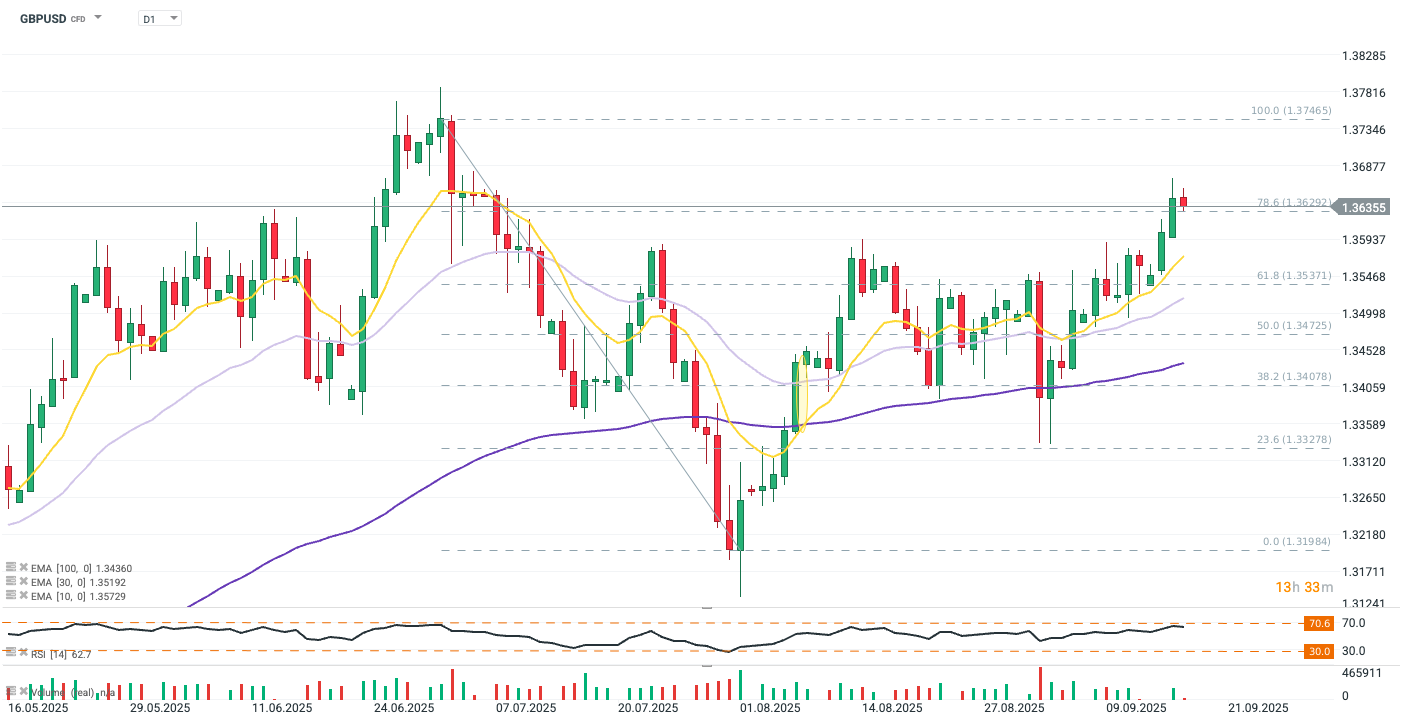The British pound is down 0.1% against the dollar today, yet remains the most resilient G10 currency in the face of the USD rebound. CPI came in as expected but still at record-high levels, limiting the Bank of England’s flexiblity, while the attention on the UK is strengthened further by Donald Trump’s second state visit this year.

Today’s correction in GBPUSD paused at the 78.6% Fibonacci retracement of the last downtrend. This support is relatively weak given the likely spike in volatility around the Fed decision, but staying above the 10-day EMA (yellow) should help preserve the current uptrend. Source: xStation5
What is shaping GBPUSD today?
-
UK's inflation held at 3.8% y/y in August, the highest since January 2024. Price pressures persist despite still restrictive interest rates (currently 4%), slow economic growth and lagging labor productivity. However, the in-line CPI reading, combined with a broader USD rebound, interrupted a two-day streak of above-average GBPUSD gains.
-
Rising housing and rental costs remain the biggest burden for British consumers (+6%), with food prices also being in the forefront of price increases in August (+5.1% y/y). This was partly offset by slower price growth in transportation services (mainly airfares) and in hotels and restaurants.
-
The absence of CPI surprises slightly cooled bullish sentiment on the pound, but divergent monetary policy between the UK and US should continue to support the currency. The market expects the Fed to cut rates by 25 bps today, while the Bank of England is expected to hold rates steady tomorrow. Given wage pressures and the UK’s highest G10 inflation, the BoE has no room to be “more dovish than expected,” unlike the Fed.
-
Meanwhile, Donald Trump’s second visit to the UK this year is underway. Beyond ceremonial events, the trip is already serving as a platform for key trade and investment negotiations. Notably, both parties have agreed on Tech Prosperity Deal, with US tech giants (Nvidia, Google, Microsoft, OpenAI) committing around £31 billion to the UK’s quantum and AI technology sectors.

Morning Wrap: Global sell-off in the technology sector (13.02.2026)

Daily summary: Silver plunges 9% 🚨Indices, crypto and precious metals under pressure

US100 loses 1.5% 📉

🚨Gold slumps 3% amid markets preparing for Chinese Lunar Year pause


